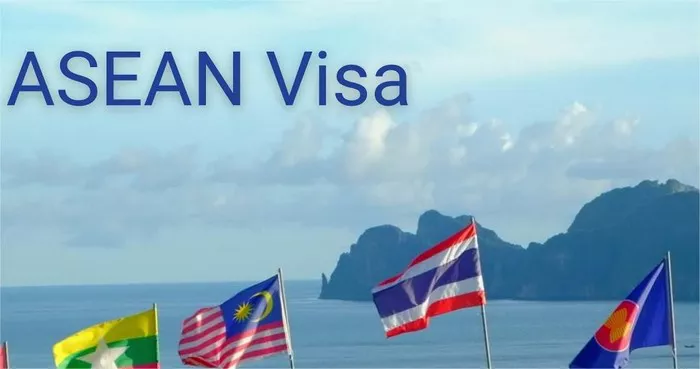In April 2024, Thai Prime Minister Srettha Thavisin proposed a Schengen-like visa program with several ASEAN counterparts. Srettha’s plan envisions a common visa area for Cambodia, Laos, Malaysia, Myanmar, Thailand, and Vietnam. Following the EU model, short-stay visitors could access these six countries with a single application for up to 90 days.
The initiative aims to boost tourist numbers beyond pre-COVID levels. In 2023, tourist arrivals in ASEAN countries were about 70% of pre-COVID figures, with Thailand leading at over 28 million, still far below its 2019 peak of nearly 40 million. The plan focuses on economic growth and tourist spending, which totaled nearly US$250 billion in 2022, down from over US$350 billion in 2019.
In 2023, Thailand hosted 28 million tourists, Malaysia 20 million, Cambodia 5.5 million, Laos 3.4 million, Myanmar 1.2 million, and Vietnam over 12 million—a 300% increase from the previous year. The plan aims to leverage existing tourist hotspots while promoting destinations like Cambodia, Laos, and Vietnam. This aligns with Srettha’s goal of positioning Thailand as a hub in mainland Southeast Asia through air traffic connectivity.
The government has set an ambitious target of attracting 80 million visitors by 2027. However, Thailand’s airports were over capacity at 40 million arrivals, and the expansion of Bangkok’s Suvarnabhumi Airport faces delays. Despite these challenges, Srettha remains optimistic.
The common visa program, while promising, faces significant challenges. ASEAN states are concerned about visa overstays, illegal work, and security issues. Major tourist destinations like Thailand and Malaysia have dealt with tourists overstaying visas and doing visa runs to neighboring countries. Additionally, tourists engaging in employment or running businesses without appropriate visas is a recurring problem.
Security concerns, including terrorism, international smuggling, and foreign criminals, pose the biggest challenge. Balancing these concerns with potential economic benefits is crucial.
Implementing a common visa area requires the six ASEAN states to develop unified entry rules, harmonize visa-free entry for third countries, and share data. This includes sharing massive amounts of data for background and security checks, a daunting task given differing visa issuance protocols among member states.
Member states are cautious about issuing visas across zones where lax procedures may lead to increased crime. For instance, Thailand struggles with visa issuance abuse by Chinese nationals, many of whom moved to Thailand after Cambodia’s 2024 crackdown on gambling. This “Chinese grey money” has led to allegations of gambling, cybercrime, drug smuggling, and violent crime.
Another challenge is finding a common language, likely English, for processing paperwork across six countries with different languages. Data security, privacy, and bureaucratic capacity are additional concerns. Thailand already faces data security issues, and Myanmar’s current capabilities are unknown.
The biggest hurdle is ASEAN itself. While ASEAN is effective at resolving conflicts between member states, it struggles with deep regulatory and economic integration. Implementing a visa requires consistent practice regardless of political changes. Security protocols must be strictly applied to avoid favoritism, lax oversight, or corruption.
ASEAN multilateralism relies on national bureaucracies for implementation, monitoring, and oversight, creating a chicken-and-egg problem. For long-term success, the program demands deep commitment and endurance. Once rules are agreed upon, they must be rigorously enforced.
The plan, though modest in appearance, has broad implications. Other ASEAN initiatives, like ASEAN–X, have better chances of success as they involve like-minded and capable states working bilaterally, with additional governments joining later.
ASEAN has a mixed track record with deep integrative initiatives requiring long-term vision. This ambitious plan demands extensive planning, commitment, and foresight. ASEAN states must enhance their engagement and expectations to address security and sovereignty concerns—objectives not traditionally covered by ASEAN.


